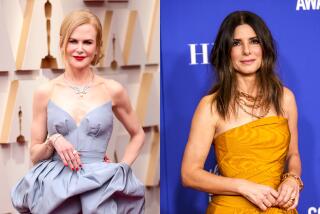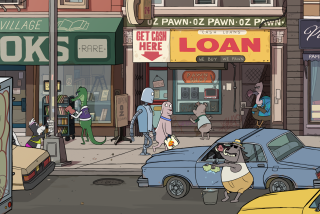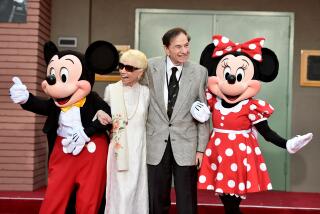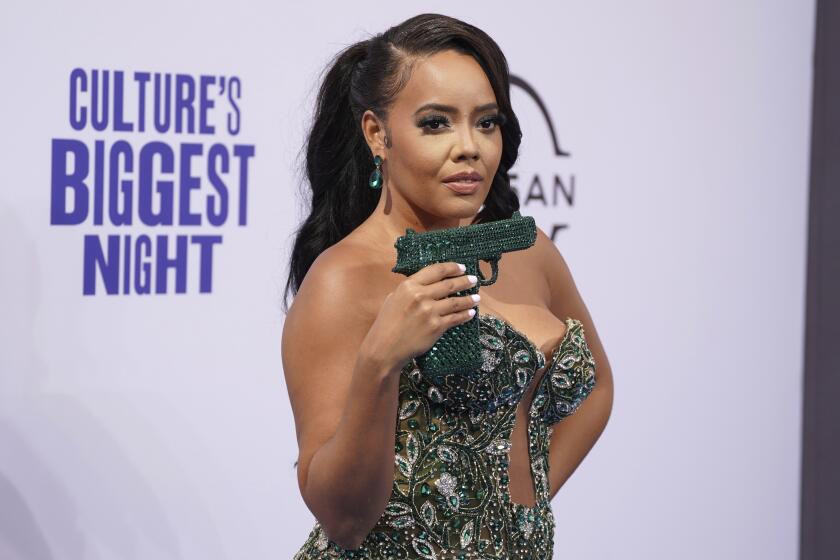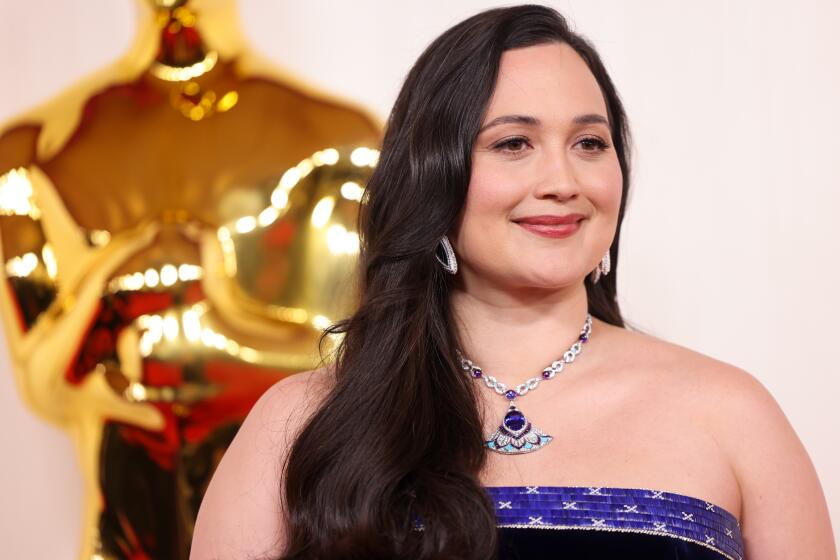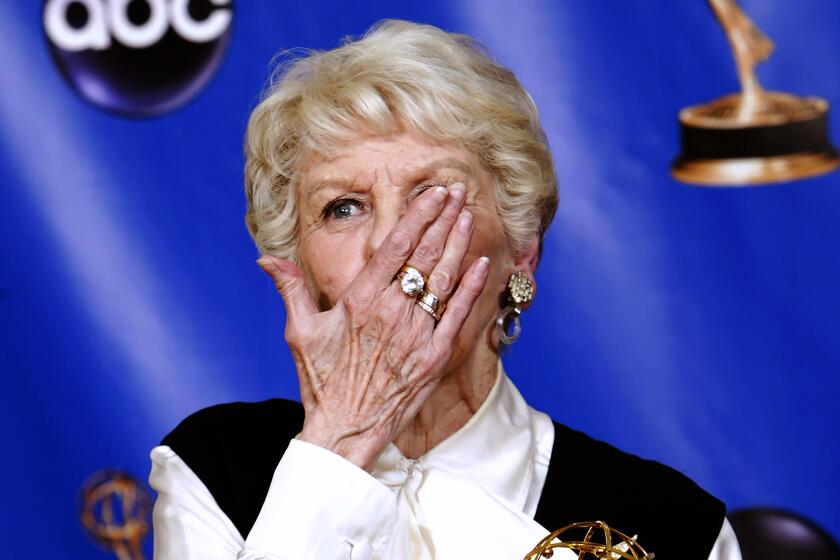Q&A: For Rob Marshall and David Magee, the time was right to bring back Mary Poppins
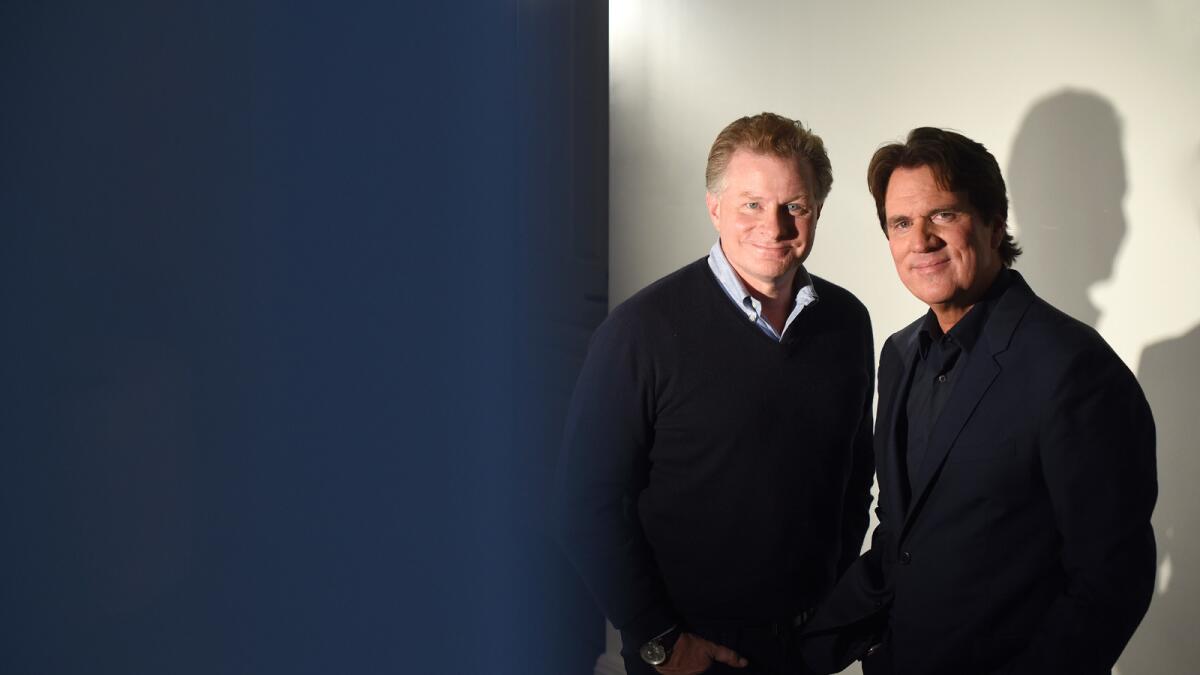
With three Oscar nominations between them, the collaboration of screenwriter David Magee (“Life of Pi,” “Finding Neverland”) and Rob Marshall (“Chicago”) could have been a clash of egos. Instead, when the pair came together (with co-screenwriter-producer John DeLuca, Marshall’s working and personal partner of 36 years) to bring “Mary Poppins Returns” to the big screen, they shared complete harmony. The Envelope joined Marshall and Magee for a chat in New York’s Beekman Hotel to talk about what made their pairing, and “Poppins,” take flight.
Why did you two click so quickly?
Marshall: His humanity, who he is. I liked David right away; I liked his heart, I liked his vulnerability.
Magee: When you have those first conversations, you can tell quickly whether or not you’re speaking the same language. But you know very quickly, if you’re finishing each others’ sentences.
Marshall: With anybody I work with, including actors, ego has got to be checked at the door. And the best idea in the room has to win. The goal was to find collaborators who had this in their blood.
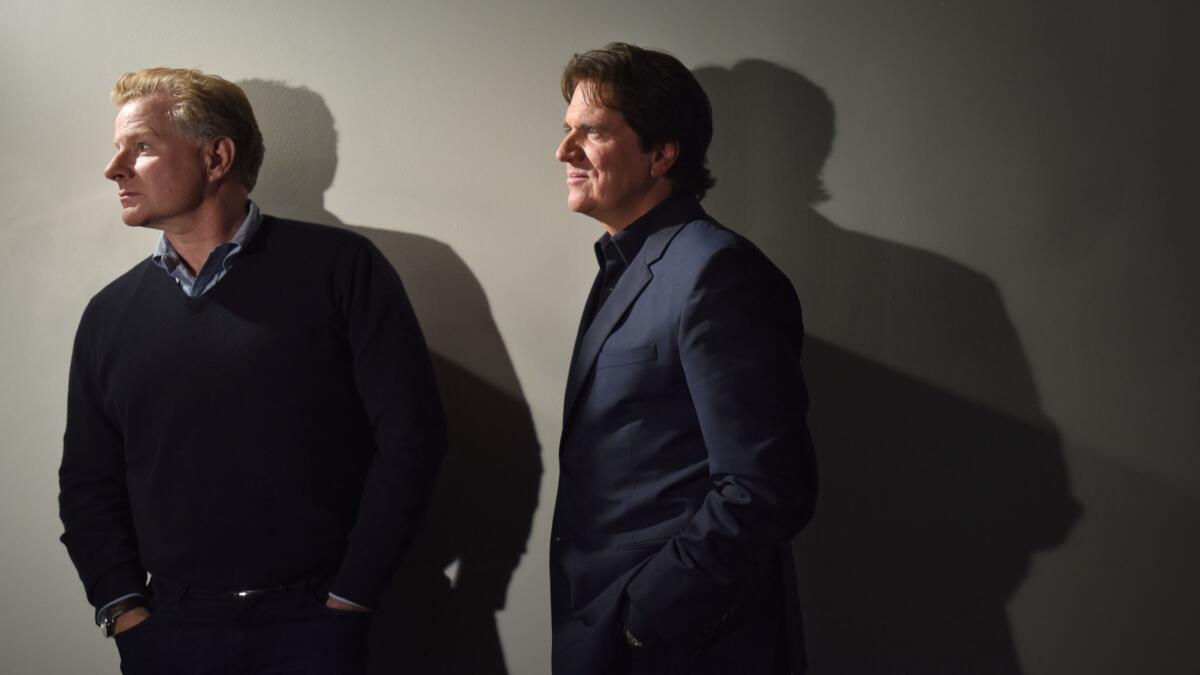
You’re two 50-something guys from the American Midwest, though, and there you are tackling this beloved British children’s classic. Was there any cognitive dissonance going on?
Magee: Well, I’ve been writing British films for years. When I got to write “Finding Neverland” years ago, it was a fluke — someone was looking for a writer and I happened to be sitting there and I raised my hand. The people assumed I was British because I had written it — and then I started getting offers for British films.
Marshall: It’s something you have an innate instinct for, for whatever reason. I lived in London for a year as a kid – when I was 11, my father was an English professor and we were there on sabbatical. It’s like a second home for me, and John [DeLuca] worked on the West End as a performer.
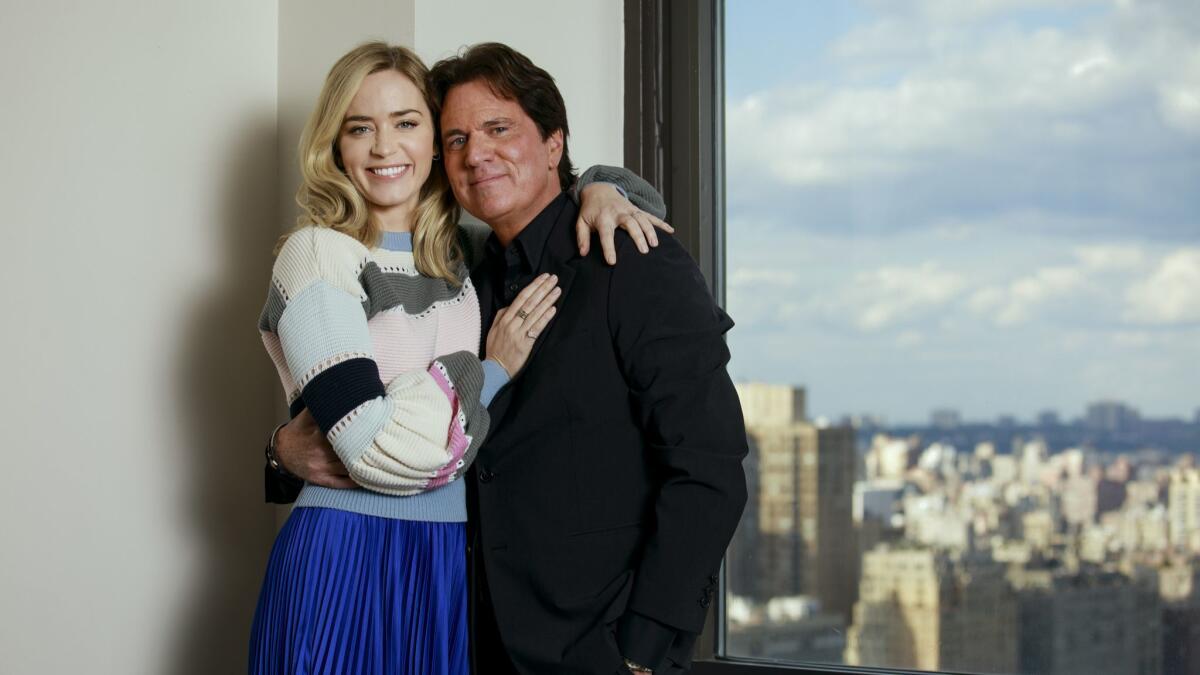
“Mary Poppins” came out in 1964, which when we look back was a time of great cultural upheaval that led to social upheaval. It’s interesting that “Returns” is coming out when it is. Do you think there’s a connection?
Marshall: Yes, we all feel it. I do feel our movies are an escape, but it’s an emotional film that deals with deeper issues I think people will connect with now. When I asked Meryl Streep to do it, she was like, “In a fragile time, I want to be a part of sending this message out into the world.”
I also understand you’ve left a little personal Easter egg in the film — the youngster Georgie’s giraffe is named Gillie, after Rob and John’s dog, correct?
Marshall: We knew she didn’t have much time – she was already 15 years old, and she passed away at the age of 18. Tibetan terriers are supposed to live between 12 and 15 years, so we were treasuring every moment. Because John and I don’t have children, she was like our child. So we gave her name to the giraffe and then there’s a scene at the end where everyone is going up in balloons and our assistant Caroline is holding the dog. So she’s in the film, too.
How did the different elements of the script come together? Were you sitting alongside composers Marc Shaiman and Scott Wittman to figure out where to fit the songs in?
Marshall: We would meet for a couple of times a week, just talking about what might happen. I would type up a synopsis of what we’d describe and write, “But I don’t know what happens here.” Then we’d read our notes and pick up the conversation from there.
Magee: It was a fascinating process because I’ve never written a musical before. I would write a scene knowing a song was coming, but not exactly knowing where. I would talk my way into the song, then share it and say, “Somewhere in here the song takes over” and sometimes I would write the button on the scene, knowing the very next thing was the song.
Musicals in general have really made a comeback from a dry period in the ’80s and ’90s. Why did they ever go away?
Marshall: I have a funny feeling that genres are never dead. It’s how they get approached, how they’re done.
Magee: Something like “Game of Thrones” — it’s not about the dragons, it’s about the characters. It’s the same with musicals; they have to be about people, and then music is allowed in the world. You have to respect that.
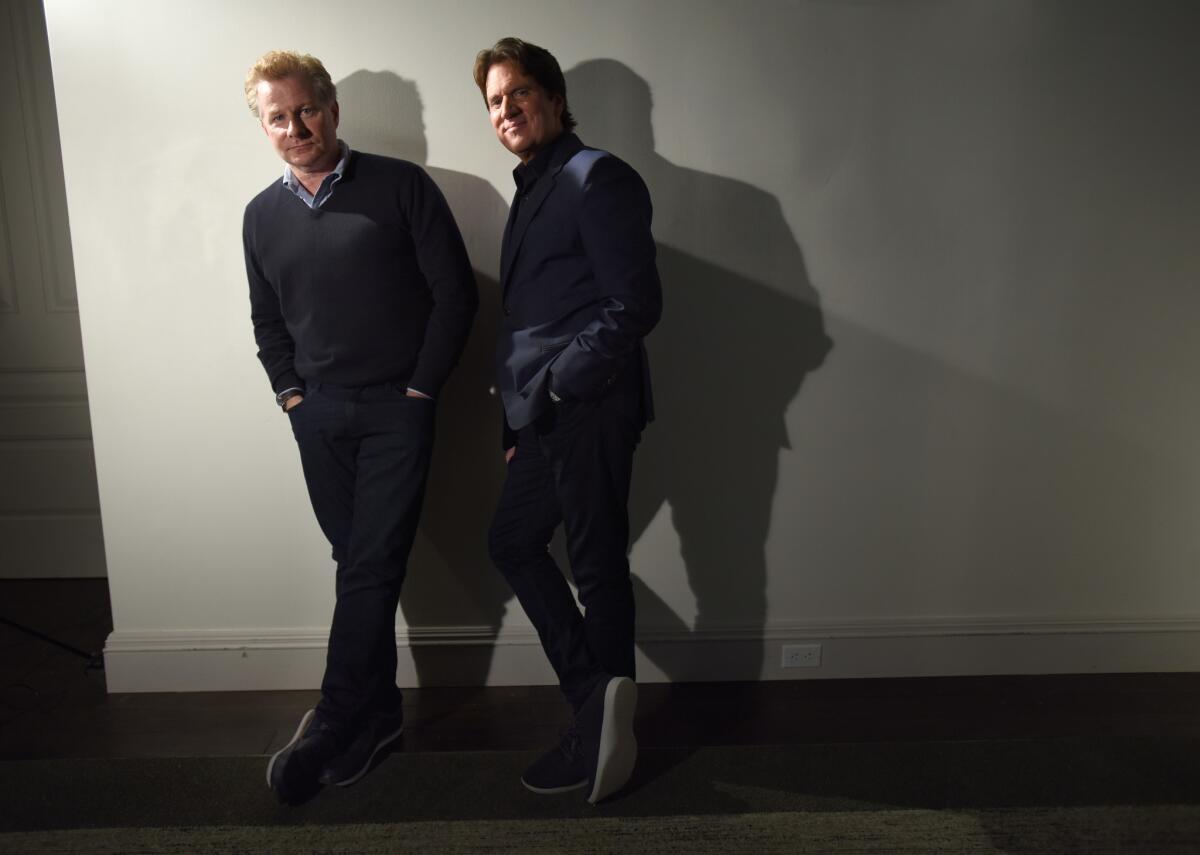
More to Read
From the Oscars to the Emmys.
Get the Envelope newsletter for exclusive awards season coverage, behind-the-scenes stories from the Envelope podcast and columnist Glenn Whipp’s must-read analysis.
You may occasionally receive promotional content from the Los Angeles Times.
